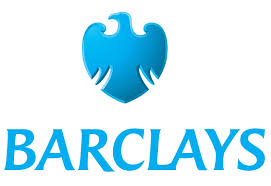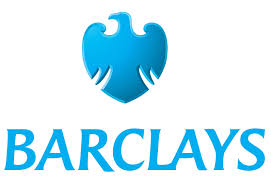
The tax overhaul by the Trump administration in the U.S. would result in a write down of about 1 billion pounds ($1.34 billion) on the annual profits after tax for Barclays bank, the company said in a recently published statement.
The value of the deferred tax assets of the bank would be forced to be reduced by the British lender as a direct result of reforms in the tax system in the U.S. which was made into a law after President Donald Trump signed the document to this effect on December 22. This would result in the bank being prompted to accept a one-off charge which would be incorporated and adjusted in the results of the bank for the 12 months ending December this year.
The lender said that a fall of 20 basis points would happen in the common equity Tier 1 capital ratio of the lender, the bank said. The common equity Tier 1 capital ratio is one of the critical measures for the financial strength of banks.
The British lender has been streamlined and changed into a transatlantic type of bank which would be focused on the United States and Britain by Chief Executive Jes Staley ever since he took over the reigns of the bank in December 2015.
The bank has been attempting to simplify its structure and increase returns to shareholders and in this effort, the bank has been prompted to move away from a range of its non-core operations including its business in Africa and some of the units in Asia, which are all part of the restructuring process for the bank.
The exit of the bank from its African business has already resulted in write-offs amounting to the value of 628 million pound attributable loss in the nine months to the end of September, the company had earlier said. the copany would be pushed further in financial troubles due to the anticipated 1 billion pound write down to compromise for the U.S. tax changes.
The U.S. tax reform would see the corporate tax being slashed from 35 per cent to 21 per cent and the entire tax reform is expected to cost the economy about $1.5 trillion and is the largest to happen in the country in terms of taxes since the 1980s.
Even through for the long run, Barclays estimates that there would be positive impacts on its post-tax earnings due to the lowering of corporate taxes in the U.S., the company has also warned that the Base Erosion Anti-Abuse Tax (BEAT) could result in a significant reduction in that benefit. The BEAT was created to stop multinational companies from misusing the tax code and has been included in the legislation.
“Due to the uncertain practical and technical application of many of these provisions, it is currently not possible to reliably estimate whether BEAT will apply and if so, how it would impact Barclays,” the lender added.
(Source:www.reuters.com)
The value of the deferred tax assets of the bank would be forced to be reduced by the British lender as a direct result of reforms in the tax system in the U.S. which was made into a law after President Donald Trump signed the document to this effect on December 22. This would result in the bank being prompted to accept a one-off charge which would be incorporated and adjusted in the results of the bank for the 12 months ending December this year.
The lender said that a fall of 20 basis points would happen in the common equity Tier 1 capital ratio of the lender, the bank said. The common equity Tier 1 capital ratio is one of the critical measures for the financial strength of banks.
The British lender has been streamlined and changed into a transatlantic type of bank which would be focused on the United States and Britain by Chief Executive Jes Staley ever since he took over the reigns of the bank in December 2015.
The bank has been attempting to simplify its structure and increase returns to shareholders and in this effort, the bank has been prompted to move away from a range of its non-core operations including its business in Africa and some of the units in Asia, which are all part of the restructuring process for the bank.
The exit of the bank from its African business has already resulted in write-offs amounting to the value of 628 million pound attributable loss in the nine months to the end of September, the company had earlier said. the copany would be pushed further in financial troubles due to the anticipated 1 billion pound write down to compromise for the U.S. tax changes.
The U.S. tax reform would see the corporate tax being slashed from 35 per cent to 21 per cent and the entire tax reform is expected to cost the economy about $1.5 trillion and is the largest to happen in the country in terms of taxes since the 1980s.
Even through for the long run, Barclays estimates that there would be positive impacts on its post-tax earnings due to the lowering of corporate taxes in the U.S., the company has also warned that the Base Erosion Anti-Abuse Tax (BEAT) could result in a significant reduction in that benefit. The BEAT was created to stop multinational companies from misusing the tax code and has been included in the legislation.
“Due to the uncertain practical and technical application of many of these provisions, it is currently not possible to reliably estimate whether BEAT will apply and if so, how it would impact Barclays,” the lender added.
(Source:www.reuters.com)





